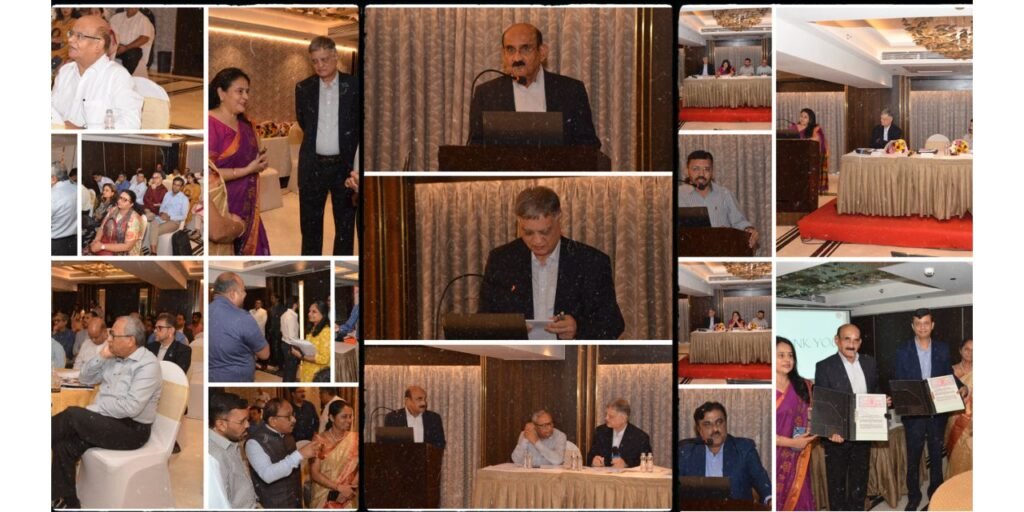Highlights from the Industry Meet of the Wool Research Association

On August 30, 2024, the Wool Research Association (WRA) organized an industry meet at the Hotel Satkar Residency in Thane. The event was attended by a distinguished group of dignitaries, industry leaders, and representatives from various sectors, including the Vice-Chancellor of Maharashtra Agricultural Universities and the Textile Commissioner. Vibrant conversations on the direction of textile innovation were facilitated by this occasion.
The Event’s High Points
Interactive talks at the event focused on advances connected to wool and Sportech, as well as developments in textile technology. Visitors got the chance to see state-of-the-art innovations that demonstrated WRA’s dedication to excellence in textile research and development.
The signing of a Memorandum of Understanding (MOU) between WRA and NanoSafe Solutions Pvt Ltd was a noteworthy result of the conference. The objective of this collaboration is to collaboratively create and market research findings, with a specific emphasis on technology transfer contracts that encompass intellectual property rights and royalties. The goal of the project is to develop an aqueous-based emulsion formulation that can be applied in different ways to biodegradable textiles, such cotton and blends, in order to treat them with functionalized treatments that prevent microbial development, discourage rodents, and improve UV resistance.
Important Topics Covered
During the occasion, the Ministry of Textiles and leaders from the sector brought up a number of significant points:
Centers of Excellence (COE) Support: The Ministry of Textiles pledged to help COEs by offering guidance, funding, and sector-specific strategic planning.
Collaboration Opportunities: Financial institutions were encouraged to participate in conferences to explore collaboration opportunities.
Monthly Sports Textiles Forums: It was suggested that a sports textiles forum be held each month to talk about tactics and difficulties.
Textile Clusters: It was mentioned that there was a need for specific textile clusters that catered to sporting goods.
Cutting Down on Fabric Imports: Everyone agreed that cutting back on fabric imports was essential for sports textiles.
Numerous Uses for Wool Fibers: The talk covered the several ways that wool fibers are used in sectors other than textiles, such as building and beauty.
Production-Linked Incentives (PLI): There has been a push for the government to expand these incentives to small and medium-sized businesses (SMEs), since it was seen that the present PLI programs predominantly favor corporate companies.
Skill Development: The industry placed a strong focus on the creation of educational institutions to assist in the crucial demand for skill development.
Industry-Agriculture Partnerships: The significance of collaborations between textile companies and agricultural institutions was emphasized.
Retention of Students in Industry: Rather than switching to other industries, it was suggested that more students seek jobs in the textile business.
Assistance for COEs: The Ministry will offer COEs financial support, strategic planning, and guidance.
Cooperation: To investigate joint ventures, financial institutions are encouraged to attend conferences.
Sports Textiles Forum: It is suggested to have a monthly forum to discuss tactics and difficulties in the field of sports textiles.
Textile Clusters: Sports goods require their own clusters.
Fabric Imports: It is generally agreed upon to decrease the imports of fabric for sports textiles.
Applications for Wool: It was mentioned how wool is used in the building and cosmetics sectors.
PLI: It is advised that PLI programs be expanded to include SMEs, as they now mainly assist large companies.
Skill Development: The business community emphasizes the importance of educational institutions and skill development.
sector-Agriculture Partnerships: It’s critical that the textile sector and agricultural institutions work together.
Student Retention: It is advised to encourage more students to choose professions in the textile sector.
